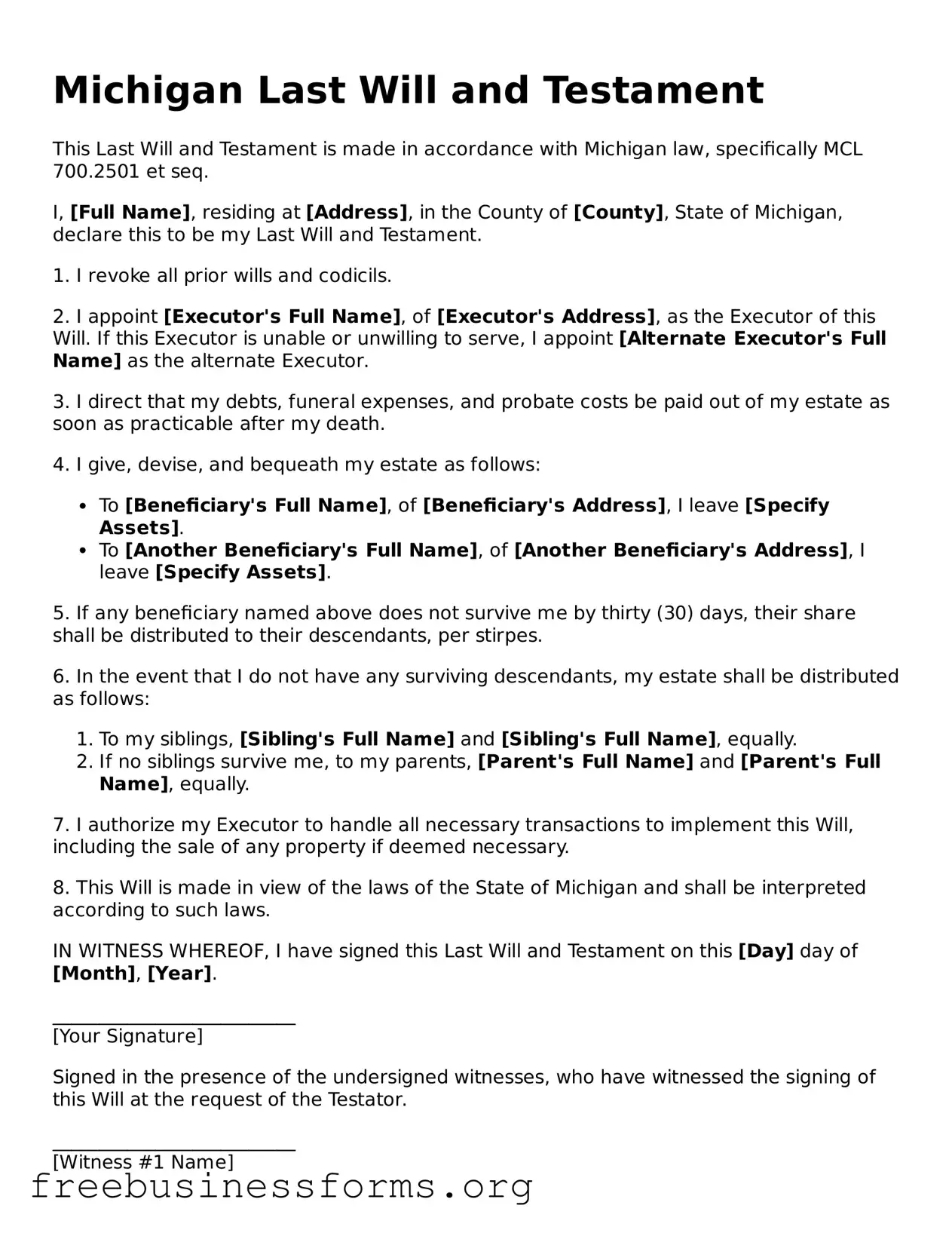Blank Last Will and Testament Template for Michigan
A Michigan Last Will and Testament form is a legal document that outlines how a person's assets and responsibilities will be managed after their death. This form ensures that your wishes regarding property distribution, guardianship of minor children, and other important matters are clearly stated. By creating this document, you can provide peace of mind for yourself and your loved ones during a difficult time.
Open Form Here

Blank Last Will and Testament Template for Michigan
Open Form Here

Open Form Here
or
↓ PDF File
Quickly complete this form online
Complete your Last Will and Testament online quickly — edit, save, download.